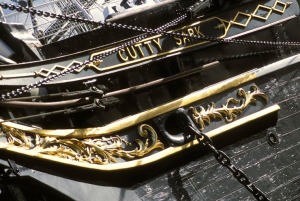A not inappropriate name for one of the many constantly shifting sandbanks of the Thames estuary but no obvious shivering when viewed by a GMI group on October 7th.
An autumn cruise on the Waverley , the world’s last sea-going paddle steamer, has become a regular feature of the GMI year and from Tower Pier there have been visits to the Medway, Whitstable and this year to the Thames estuary forts.
In 1942/3 a number of fortified towers were positioned to provide anti-aircraft protection for London and its sea approaches, some towers being controlled by the Navy (Rough Sand, Sunk Head, Tongue Sands and Knock John – each with two towers) and others by the Army (Red Sands, Shivering Sands and Nore – each a cluster of seven towers). Favourable tide conditions allowed Waverley to approach closely the Red Sands, Shivering Sands and Knock John towers giving us close-up views of these fascinating remains.
Effectively abandoned by government in the late 1950s the towers reflect the ravages of age and damage by ship collision with Nore dismantled as a hazard to shipping and Shivering Sands losing a tower. Several of the towers became homes for pirate radio stations – remember Screaming Lord Sutch? – and one for a time became the Independent Principality of Sealand!
Old Father Thames is far from dead and Waverley provides an unsurpassed picture of the estuary environment, navigation problems, the history and down-river migration of port activity, progress on the new Thames Gateway port project, the variety of shipping and trade and this year a security problem of great historical interest. On the return up river in the warmth of the restaurant an erudite discussion on the origin and distinction between terms such as quay, wharf, pier, berth and mooring – these GMI students! Altogether an enjoyable social and interesting academic day – why not join us next year?
Text and Image: Dr David Hilling



